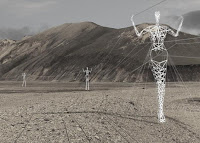Oops! They did it again
LinkedIN continues to inactivate user accounts
-- a _kt75 | note
_NEW: follow the development of wolframscharnhorst.blogspot.com and explore all _kt75 | publications via the news db... and leave your comments here
 Have you also been informed that your LinkedIN account has been inactivated, at least temporarily? Did you also receive an e-mail that told you that "some members accused you to either spam, perform phishing or connecting with people you don't know"? Did the same e-mail ask you to confirm in written that you will adhere to the rules of LinkedIN? If so, you are in good company with many other concerned people. The common procedure is as follows:
Have you also been informed that your LinkedIN account has been inactivated, at least temporarily? Did you also receive an e-mail that told you that "some members accused you to either spam, perform phishing or connecting with people you don't know"? Did the same e-mail ask you to confirm in written that you will adhere to the rules of LinkedIN? If so, you are in good company with many other concerned people. The common procedure is as follows:- the account is inactivated without any prior warning
- the only contact path is directly via some sort of help center of LinkedIN
- if happened for the second time or more, the individual request for re-activation of the account is processed rather slowly
- the accusations are as always: spam, phishing or connecting with to many people and the accusations are not documented at all
This rather in-transparent and basically crude way of "coordinating" member behavior in principle must result in a functional loss of the usefulness of social media as such. Essential questions popup like:
- How does LinkedIN evaluate accusations like spamming, phishing, wrong commenting, etc.? What are the benchmarks?
- Who actually accuses? More and more one gets the impression that everybody can accuse anybody for doing wrong resulting in the inactivation of the respective member account.
- What in terms of member participation is actually still allowed?
- Isn't it LinkedIN that encourages the members to network (today one simply can connect with almost everybody without indicating any reason like in earlier times)?
- Isn't it LinkedIN that motivates the members to share comments as much as possible?
Feel invited to reflect about the above, comment it, share it, etc. and follow the further development of a new sustainability page.
